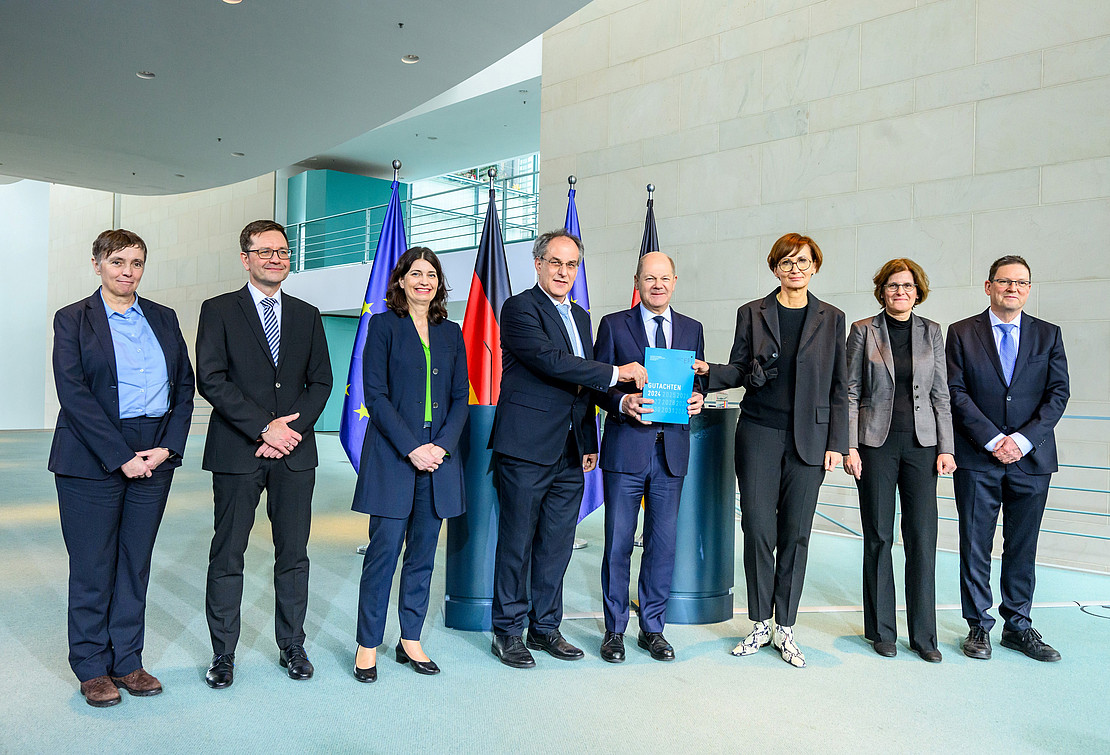This page contains automatically translated content.
Commission of Experts for Research and Innovation hands over its report
 Image: David Ausserhofer.
Image: David Ausserhofer.To what extent do the federal government's research and innovation policy measures - including project funding and innovation consulting - contribute to the creation of new findings, inventions and business models? And do these measures help to tap into new value creation potential and better manage transformation processes? These questions are becoming ever more pressing in times of empty public coffers and increasing pressure to transform. The evaluation studies commissioned by the German government should actually provide information on how effective the measures examined are. "So far, however, this has hardly been the case," says Professor Guido Bünstorf from the University of Kassel and member of the expert commission, "because most evaluation studies do not meet the methodological requirements for a meaningful impact measurement."
For its annual report, the Expert Commission examined 81 publicly accessible evaluation studies from the areas of responsibility of the BMBF and BMWK, which were written between 2009 and 2023. In 59 of these 81 studies, observed developments were causally interpreted as effects of the respective measures. However, only in seven cases did the methods used allow such statements about cause-and-effect relationships to be made at all. As a result, the evaluation studies examined contribute very little knowledge about whether the objectives of the respective measures were achieved. "With a better knowledge base, policy measures could be specifically adapted and their effectiveness improved," says the chairman of the expert commission, Professor Uwe Cantner from the University of Jena. "A lack of knowledge prevents policy learning."